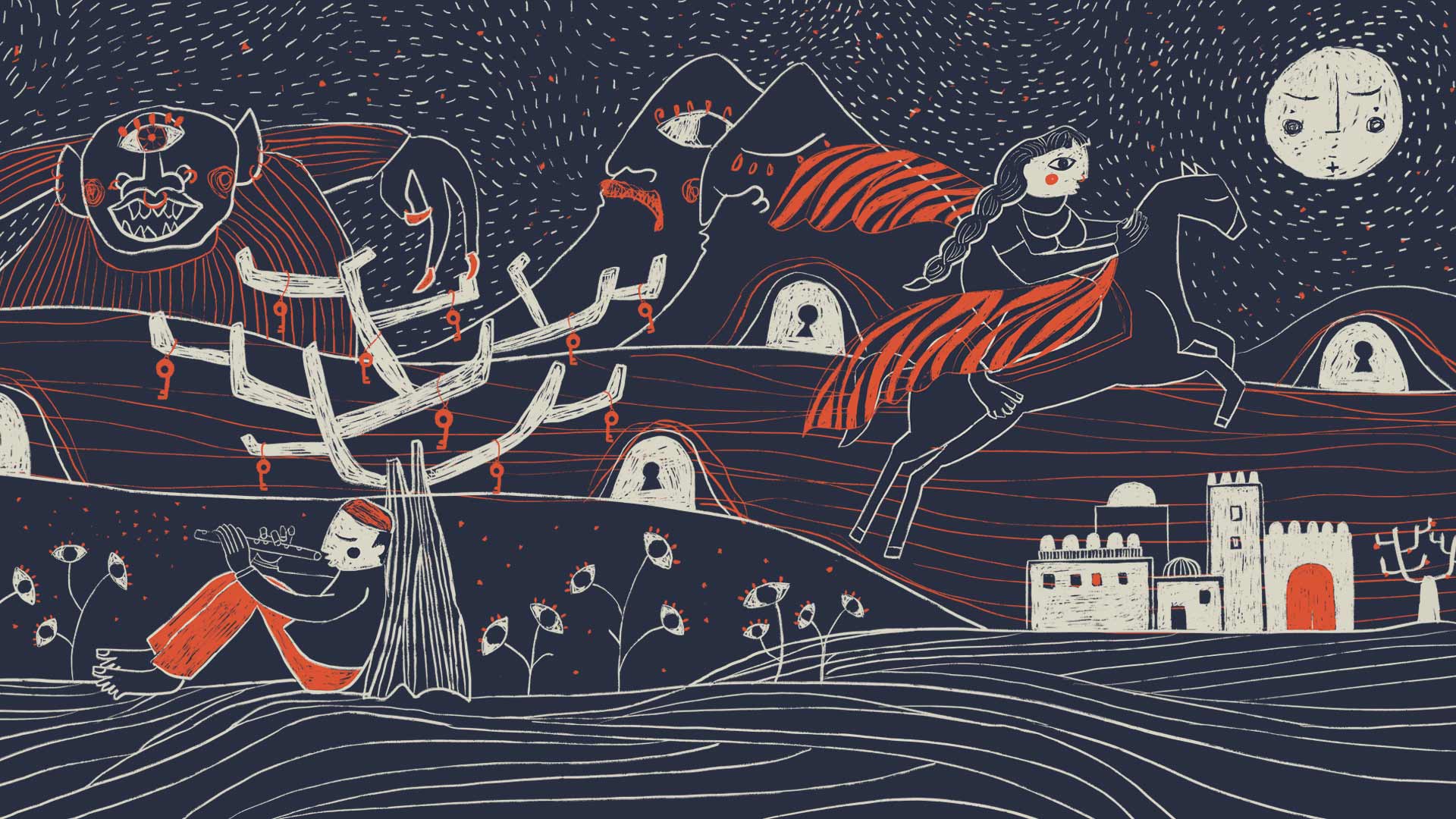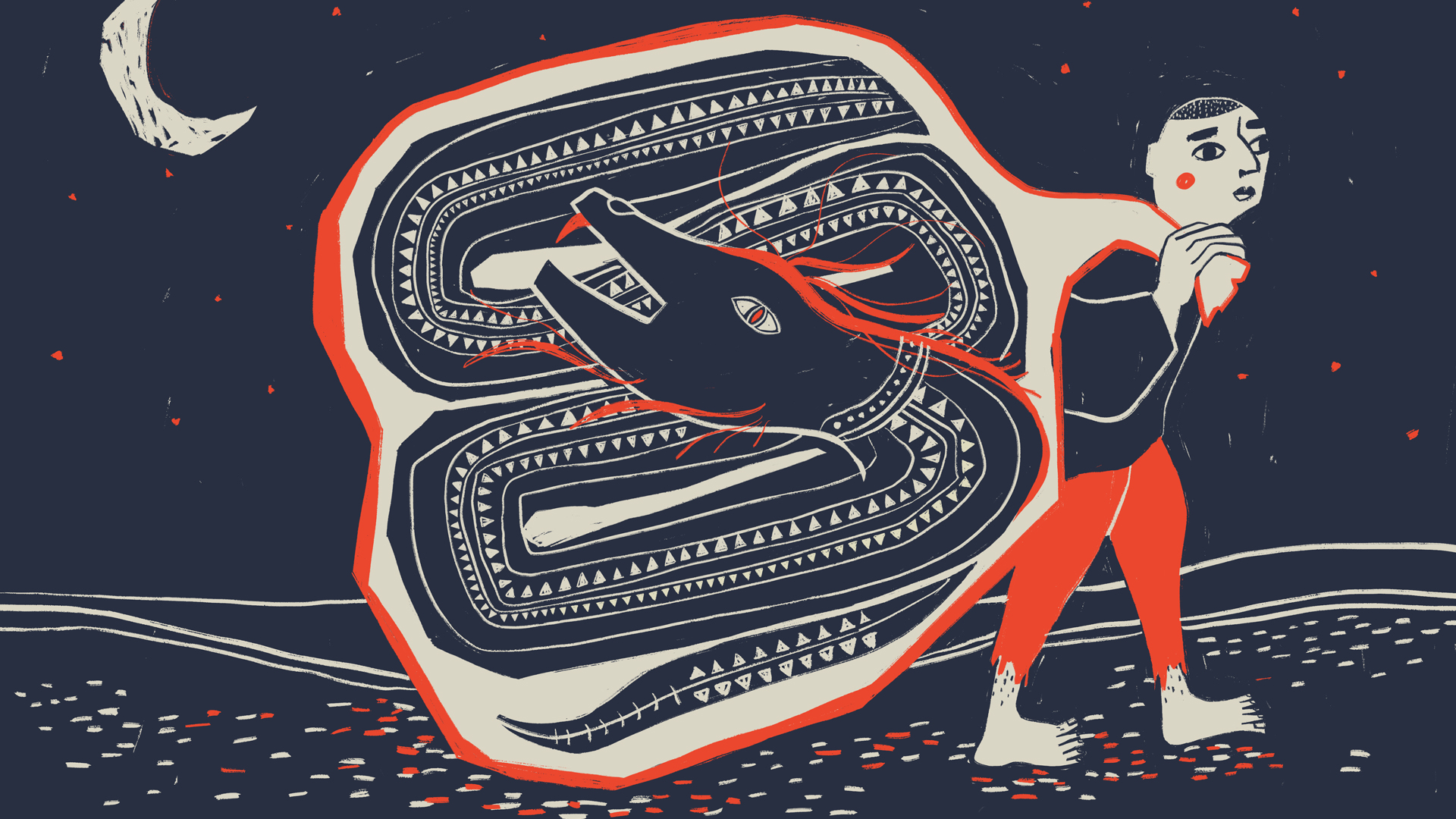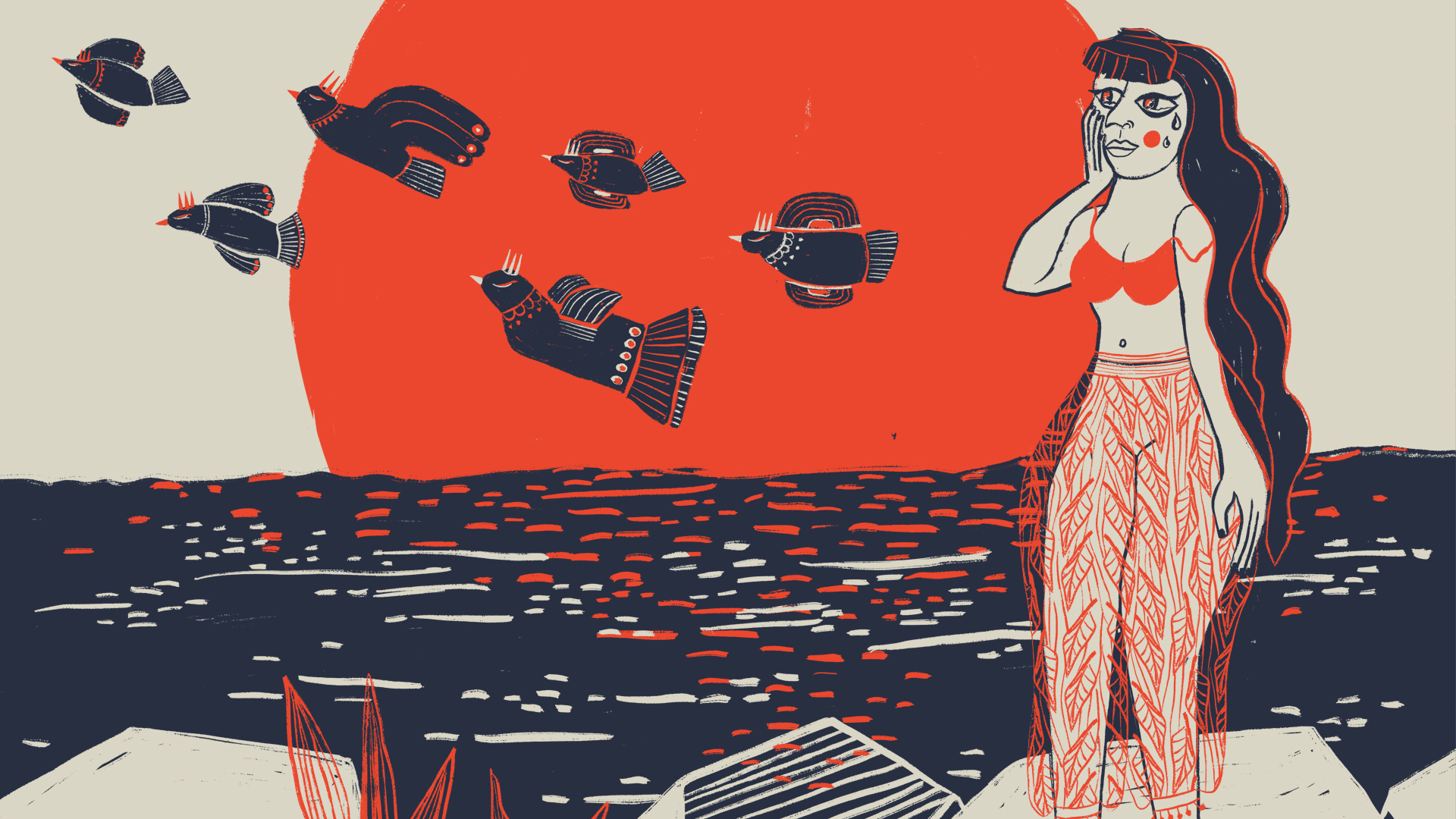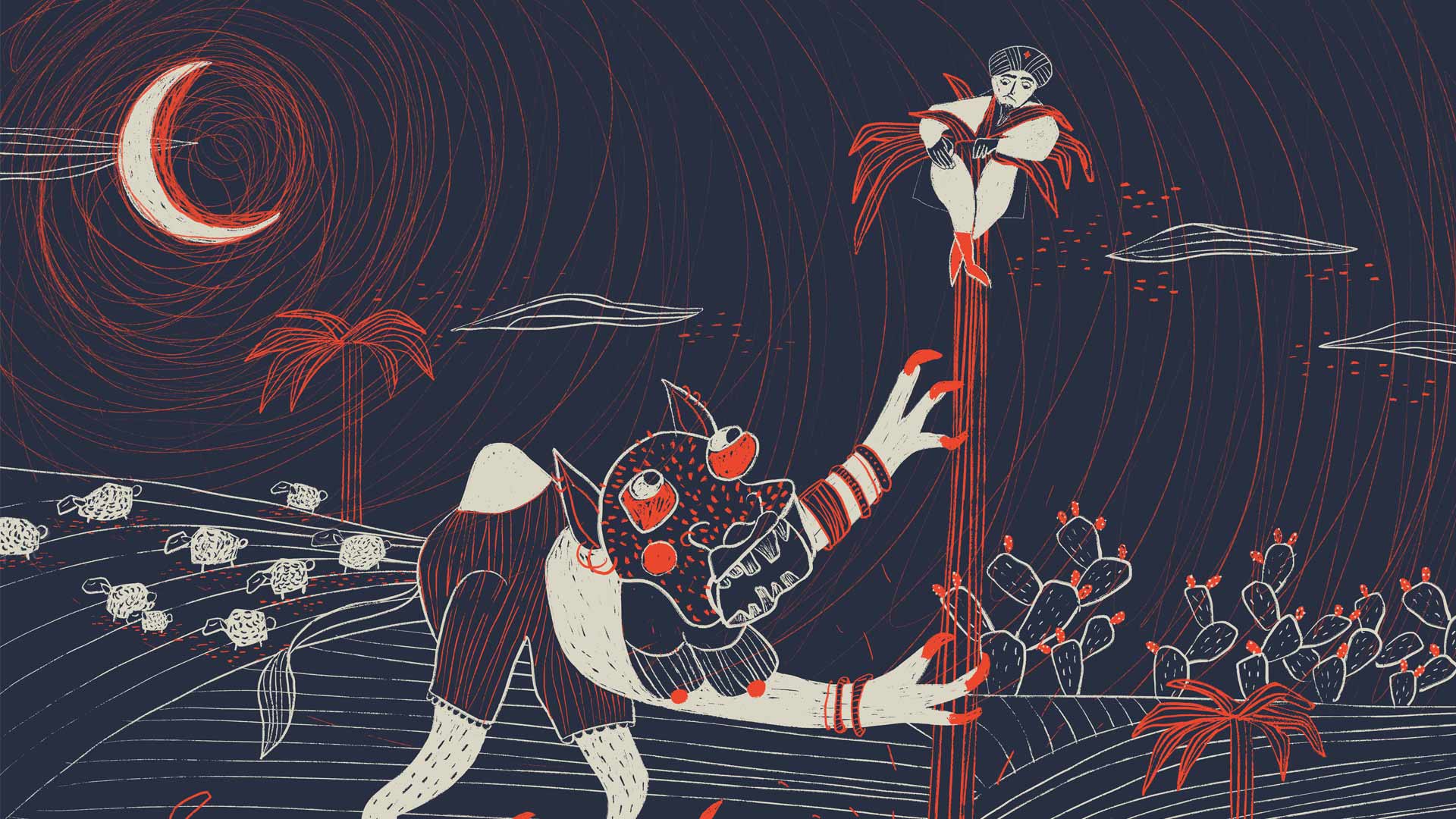| EPISODE 3
Wachma Bent El Hattab
Created by
Inkyfada Podcast
Directing
Hazar Abidi
Voice-Over
Editing, mixing & Sound Design
Oussema Gaidi
Music
Editorial support
Illustration
Atelier Glibett
The lumberjack El Hattab plans to go on a Hajj (pilgrimage), once he has saved up the money. His wife gives birth to a daughter with a birthmark resembling a tattoo on her arm, similar to an auspicious symbol of happiness and wealth.
One day when he is in the forest to work, the lumberjack comes across a puppy and starts caring for it as if it were his child. The story begins when the Hajj period is announced, and the puppy, unbeknownst to its master, follows him to Mecca.
Later, another dog appears in the tale, but this time following Wachma, the woodcutter's daughter who was born with the mysterious birthmark. Wachma, intrigued by this animal that she keeps seeing every night, discovers its real identity and the link that unites them.
Told by dancer and choreographer Saïda El Khadhra, the story is the heritage of an endangered oral tradition.
With the help of Bochra Triki, literature professor and podcast producer, Hazar Abidi attempts to deconstruct the symbols that permeate the tale and the social conventions that are conveyed.
Hazar Abidi additionally analyses the concepts of inheritance and karma, the notion of soul mates and destiny, as well as the cultural representations of shapeshifters and dogs.
Ija Ya Zmen
Latest episodes
| EPISODE 5
Balek
| EPISODE 4
Snad and the Dove Woman
| EPISODE 2
Ali Weld Essoltane
ABOUT
Inkyfada Podcast is the first platform entirely dedicated to original Tunisian podcasts, and was conceived by Inkyfada media in collaboration with the in-house research and development laboratory, InkyLab. Inkyfada joined the global podcast boom in 2017, when the team produced the first Tunisian audio documentary, diving deep into the belly of the El Kamour struggle taking place in the desert. Since then, Inkyfada Podcast has produced a wide variety of documentaries, investigations, and podcast series, as well as articles accompanied by music; covering a multitude of contemporary issues in order to offer an immersive and alternative podcast experience. Whilst exclusively offering audio content, the Inkyfada Podcast team upholds the same core values and principles of inkyfada.com, and is committed to producing high quality content though a dynamic and meticulous production process. In addition to the permanent team, Inkyfada podcast works closely with various journalists, artists, illustrators, musicians and other content creators in order to diversify the platform and support artistic creativity. These podcasts differ from traditional radiophonic content in that the applied production and editing process is more akin to cinematographic techniques, in addition to being web-based, downloadable and accessible on demand. Additionally, Inkyfada Podcast uniquely offers subtitles in French, Arabic and English for all audio content, the majority of which is recorded in Tunisian or in the preferred language of the speaker in question.







